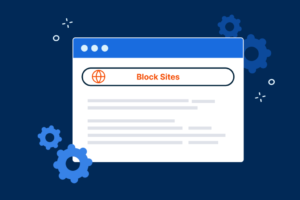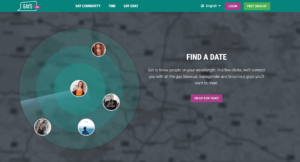How Mastering Languages Can Keep Your Brain Healthy and Sharp
Did you know that learning a new language isn’t just about conversing with locals or acing your next overseas trip? It’s also one of the best things you can do to keep your brain in top shape! Mastering a new language can improve memory, boost creativity, and even help fend off age-related cognitive decline. Ready to discover how learning a language can give your brain a workout? Let’s dive in—and stick around for some tips on how to get started.
Language Learning: A Fun Way to Keep Your Brain Healthy
If you’re serious about learning a language, how can you start reaping those brain-boosting benefits? One great option is to begin with a flexible and engaging tool like MosaLingua. Here’s what sets this app apart:
- Spaced Repetition: The beauty of this method is that you remember what you learn by reviewing it at optimal intervals, allowing the knowledge to stick with you over time.
- Real-World Relevance: Forget random vocabulary that won’t serve you in daily life. MosaLingua focuses on teaching words and phrases that you’ll use in actual conversations, so you can easily apply them in real-world situations.
- Adaptability: Whether you’re a complete beginner or you’re returning to a language you’ve studied in the past, this app tailors your learning to your fluency level, pace, and personal goals.
This app makes learning languages possible on your own terms—on your schedule. Whether you have an hour or just a few minutes, the app adapts to your availability, keeping you motivated and on track. It also provides various cognitive benefits—improved memory, better concentration, enhanced problem-solving skills—and so much more.
Key Brain Benefits of Learning a New Language
- Strengthens Memory and Focus
Learning a language constantly challenges your brain’s memory muscles. Vocabulary, grammar rules, pronunciation—it all gets stored in your brain for easy recall. Research shows that multilingual people tend to have stronger working memories, which helps with everyday tasks like problem-solving and multitasking. Plus, focusing on language structures keeps your brain sharp and alert, giving you an edge when processing information in general. - Delays Cognitive Decline
One of the greatest advantages of learning a language is its potential to delay cognitive decline as you age. Studies suggest that bilingualism can postpone the onset of Alzheimer’s and dementia by several years. How does it work? Speaking multiple languages builds cognitive reserve, essentially extra brainpower you can rely on later in life. Think of it like a rainy-day fund for your mind! - Enhances Problem-Solving Skills
When learning a language, you’re not just memorizing words. You’re also figuring out grammar rules, interpreting context, and making quick decisions about what to say and how to say it. This mental juggling sharpens your problem-solving and critical-thinking abilities. Bilinguals often excel at thinking outside the box—a skill that’s incredibly useful in today’s world, whether you’re tackling a tricky work assignment or figuring out how to fix a broken appliance. - Improves Multitasking Abilities
Switching between languages helps train your brain to juggle multiple tasks at once. This ability, known as cognitive flexibility, is like mental gymnastics for your mind. Bilinguals often excel at multitasking and adapting to new situations because they’re used to toggling between languages effortlessly. - Boosts Creativity
Learning a language is about more than just mastering new words; it’s also about understanding different cultures, perspectives, and ways of thinking. This exposure can spark creativity in unexpected ways, from inspiring innovative ideas to helping you solve problems with a fresh perspective.
Tips to Keep Your Motivation High
One reason learning a language is challenging is that it’s a journey, and staying motivated along the way is key to success. Here are some tips to help you stay on track and make consistent progress:
- Set Small Goals
Break your learning into manageable chunks. Aim for achievable milestones, like mastering 10 new words a day. It’s easy to get discouraged if you don’t see progress immediately, so celebrating small wins is important. These victories will help you stay motivated and remind you that you’re making progress. - Make It a Habit
Consistency is essential. Dedicate 10 to 15 minutes a day to learning. Practice makes perfect, and with daily practice, new words and phrases will become second nature. - Immerse Yourself
Put the language to use in your everyday life. Listen to music, watch movies, or even chat with native speakers. Immersing yourself in the language and culture will help you learn faster and increase your fluency. - Celebrate Your Progress
Every step forward is worth celebrating! Whether it’s completing a lesson, using a phrase in conversation, or understanding a song lyric, take a moment to reward yourself for your achievements. This reinforces your motivation and keeps you on track.
By setting goals, building habits, and immersing yourself in the language, you’ll find that learning becomes easier and more enjoyable. Progress is a series of small steps—so have fun with the journey!
Ready to Boost Your Brain?
Learning a language is one of the most effective ways to strengthen your brain and enhance your cognitive abilities. From improving memory and problem-solving skills to delaying age-related decline, the benefits are clear. The mental effort involved in learning a new language provides lasting advantages that extend far beyond the classroom or app, making it a valuable investment in your long-term mental agility.
The tools and techniques available today make language learning more accessible than ever. By committing to regular practice and integrating language use into your daily routine, you can unlock these cognitive benefits and enjoy significant improvements in your mental sharpness. Start today and take advantage of the opportunity to sharpen your mind while learning a valuable skill.














Post Comment